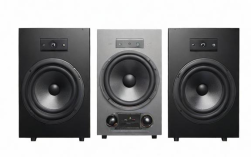energy可以搭配多种词汇,如:conserve energy(节约能源)、renewable energy(可再生能源)等。
1、Energy的基本定义与用法

名词形式:Energy作为名词,表示能量、精力和活力。“She has a lot of energy.” (她精力充沛。)。
动词搭配:Energy可以与多种动词搭配,如产生(generate)、消耗(consume)、传递(transfer)、释放(release)、储存(store)和转换(convert)等,这些动词描述了能量的不同状态和过程。
2、常见的动词搭配及其含义
产生(Generate):描述能量的来源或生成过程。“The wind turbine generates a lot of energy.” (那台风力涡轮机能产生很多能量。)。
消耗(Consume):指能量的使用或减少。“He used up all his energy in the race.” (他在比赛中耗尽了所有精力。)。
传递(Transfer):涉及能量从一个地方或物体传递到另一个地方或物体。“Energy is transferred from one object to another.” (能量从一个物体传递到另一个物体。)。
释放(Release):表示能量的散发或释放。“The energy is released when the chemical reaction occurs.” (当化学反应发生时,能量被释放出来。)。
储存(Store):强调将能量保存或储存起来以备后用。“Batteries store electrical energy for later use.” (电池储存电能以供以后使用。)。

转换(Convert):指能量从一种形式转换为另一种形式。“The solar panels convert sunlight into electrical energy.” (太阳能板将阳光转换为电能。)。
3、固定搭配短语
Renewable Energy:可再生能源,如风能、太阳能等。
Nuclear Energy:核能。
Solar Energy:太阳能。
Wind Energy:风能。
Fossil Fuel Energy:化石燃料能源。
Energy Efficiency:能源效率。

Energy Consumption:能源消耗。
Energy Conservation:节能。
Energy Resources:能源资源。
Clean Energy:清洁能源。
Alternative Energy:替代能源。
Energy Crisis:能源危机。
Energy Production:能源生产。
Energy Storage:能源储存。
Energy Policy:能源政策。
Energy Transition:能源转型。
Energy Sector:能源行业。
Energy Demand:能源需求。
Energyefficient:节能的。
Energy Management:能源管理。
4、常见形容词搭配
Full of Energy:充满活力。“The kids are always full of energy.” (孩子们总是充满活力。)。
Low Energy:精力不足。“I feel low energy today.” (我今天感觉精力不足。)。
5、相关表达方式
Potential Energy:位能或势能,指能够转化为动能的能量。
Energy Star:能源之星认证,表示高效节能的产品。
Activation Energy:活化能,指开始化学反应所需的最小能量。
Tidal Energy:潮汐能,利用潮汐运动产生的能量。
Binding Energy:结合能,原子核内的质子和中子结合在一起的能量。
Geothermal Energy:地热能,来自地球内部的热能。
Mechanical Energy:机械能,物体由于运动或位置而具有的能量。
Energy Drink:提神饮料,含有咖啡因和其他成分以提高能量的饮料。
Energy Dissipation:能量耗散,指能量在系统中逐渐散失的过程。
6、相关FAQs
Q1: What is renewable energy?
A: Renewable energy refers to energy sources that can be replenished naturally and sustainably, such as solar, wind, hydro, and geothermal energy. These sources are considered environmentally friendly compared to fossil fuels.
Q: How can we save energy at home?
A: Simple actions like turning off lights when not in use, using energyefficient appliances, and insulating your home can significantly reduce energy consumption and save on utility bills.
Q: Why is energy conservation important?
A: Conserving energy helps reduce greenhouse gas emissions, lowers utility bills, and ensures the sustainable use of resources for future generations. It also reduces reliance on nonrenewable energy sources.
通过以上详细的解答,可以看出"energy"这个单词在英语中的广泛应用和搭配方式,无论是在日常生活、工业生产还是科学研究中,"energy"都扮演着重要的角色。











